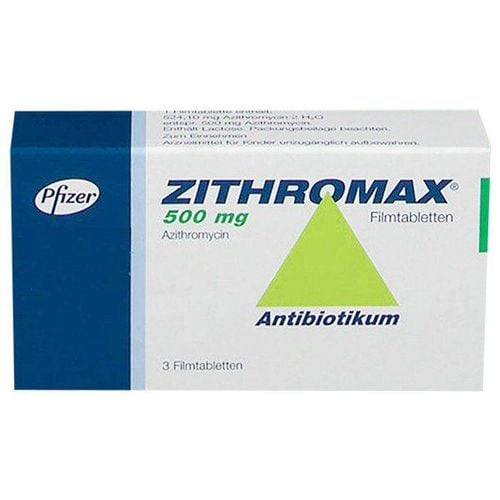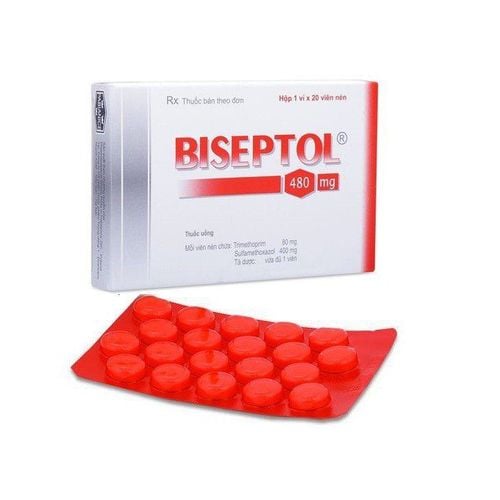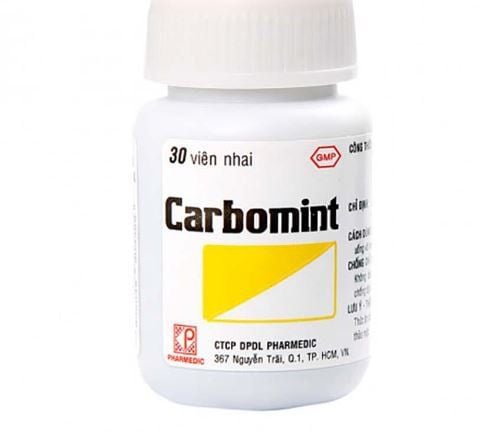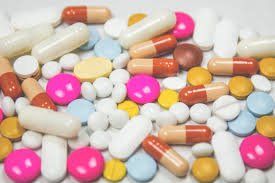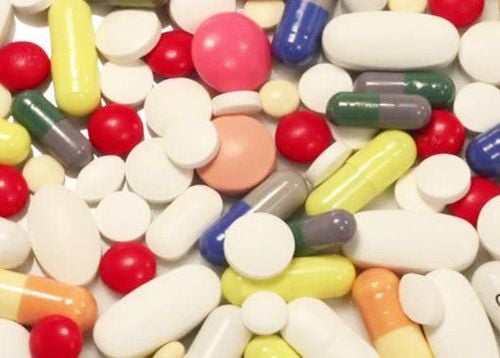This is an automatically translated article.
In recent years Vibrio parahaemolyticus is a common cause of food poisoning, especially seafood products. Inflammatory bowel disease caused by the bacterium Vibrio parahaemolyticus, which occurs after an infected person ingests contaminated food, may present a mild, non-hazardous presentation, but can also cause death.
1. Characteristics of Vibrio parahaemolyticus
Vibrio parahaemolyticus is a bacterium in the same group as the bacteria that cause cholera. It is a short, comma-shaped rod, gram-negative, non-spore forming, motile. a feather on one end.
They live and grow well in alkaline and salty environments, exist in sea water and marine animals such as shrimp, fish, snails, oysters... and die at 65 degrees Celsius after 10 minutes, they do not develop Vibrio parahaemolyticus can be grown at temperatures below 15 degrees Celsius. The suitable temperature for multiplication is 37 degrees Celsius
Because of its growth in some marine animals, Vibrio parahaemolyticus is one of the causes of food poisoning. The disease is mainly caused by eating seafood that has not been cooked or contaminated during processing and preservation.
The disease caused by this bacteria is most common in Japan, in addition to many other countries. In Vietnam, we have met many times in the northern coastal area.
2. Characteristics of inflammatory bowel disease caused by Vibrio parahaemolyticus

Người có thói quen ăn hải sản sống dễ bị bệnh viêm ruột do Vibrio parahaemolyticus
Bacterial enteritis is an acute gastrointestinal infection caused by the bacterium Vibrio parahaemolyticus. The disease has varying degrees of severity from mild to severe, usually the disease presents as mild and is less life-threatening. However, there are many cases where late detection and not proper treatment can be the cause of death due to dehydration diarrhea.
Risk factors for Vibrio parahaemolyticus infection such as:
Habit of eating raw or undercooked seafood; Cross-contamination caused by bacteria growing in other foods; Bacterial contamination during food processing and preservation of seafood; Have a history of chronic illnesses. >>See more: Inflammatory bowel disease and the spectrum of intestinal bacteria - Article by Doctor Mai Vien Phuong - Department of Medical Examination & Internal Medicine - Vinmec Central Park International General Hospital.
3. Symptoms of inflammatory bowel disease caused by Vibrio parahaemolyticus
Common symptoms after eating foods derived from undercooked seafood, signs occur within 2-6 hours after eating:
Diarrhea and vomiting: Mild cholera manifestations such as loose, watery stools, stools with a slightly fishy odor, green or yellow-green. Profuse vomiting and watery stools lead to acute dehydration. Almost no fever, no abdominal pain. Bacillary dysentery form: Loose stools, ignoring fish blood, pungent odor, accompanied by fever and abdominal pain. Signs of dehydration: The person is tired, thirsty, urinating less, eyes are sunken, heavy, slow reaction, lethargy, even coma. Symptoms usually last about 3 days, and can be mild or severe depending on the case. The disease causes more severe infections in subjects with reduced resistance.
4. Methods of diagnosis
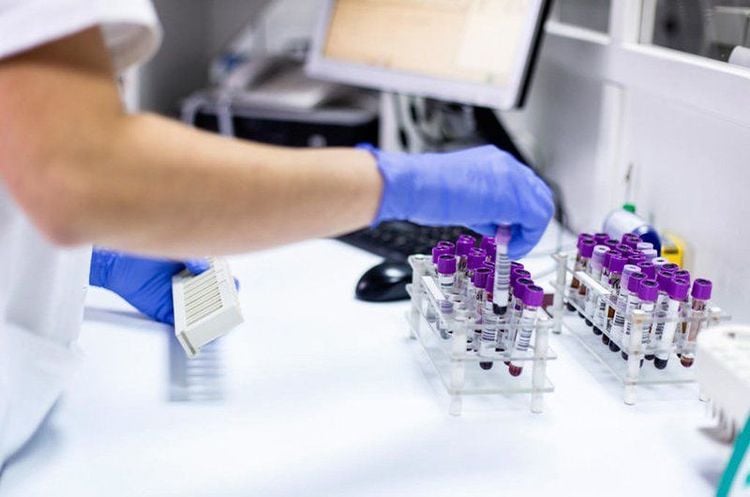
Xét nghiệm để chuẩn đoán bệnh viêm ruột
Because the disease manifests quite similar to inflammatory bowel disease caused by other microbiological causes, to confirm the diagnosis of the disease, it is necessary to conduct tests:
Specimen: Includes stool, vomit of the patient or suspected foods infection. Test method: Freshly examined under the microscope, bacteria are very mobile. Culture specimens to isolate bacteria and to make antibiograms. Virio parahaemolyticus, when isolated, will give a very clear hemolytic reaction on blood agar.
5. How to treat the disease?
Principles of treatment:
Rehydrate and electrolytes to avoid dehydration. Rehydration by drinking or infusion depending on the degree of dehydration; Treat other symptoms if present; Antibiotic treatment is not recommended in most cases. Only a few cases are indicated for treatment; Combined with diet, nutrition and care. Specific treatment:
Rehydration and electrolytes: Drink oresol or hydride solution as needed if it is still possible to drink, if dehydration is severe or the patient vomits a lot and cannot drink, then rehydrate with fluids. Reduce fever with paracetamol if the patient's fever is above 38.5 degrees Celsius, with a dose of 10-15mg/kg body weight. Antibiotics: Not recommended in most cases. In some cases of dysentery diarrhea, antibiotics are indicated. The antibiotic chosen according to the results of the antibiogram is the best. Diet: Eat nutritious food, eat easy-to-digest liquids, eat foods that ensure food hygiene and safety.
6. Prevention
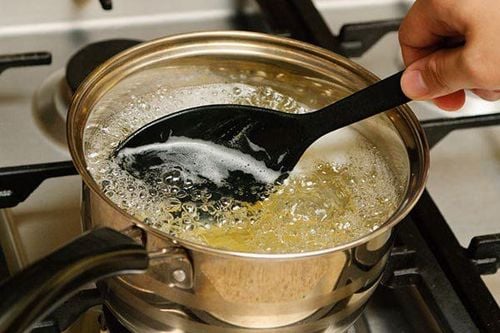
Ăn chín uống sôi để phòng ngừa bệnh viêm ruột
Specific methods: Currently, there is no specific preventive measure, and there is no vaccine to prevent the disease. Other non-specific prophylactic measures should be used. Eat fresh foods, fish and seafood that need to be processed immediately. Eat cooked food and drink boiling water, do not eat raw food, especially seafood. Ensure food safety: Do not let raw food touch cooked food. Currently, food poisoning caused by Vibrio parahaemolyticus bacteria is increasingly common. Especially in the sea areas, there is a habit of eating raw seafood. Eliminate the habit of eating raw food, helping to reduce the risk of infection with many types of bacteria, including Vibrio parahaemolyticus. If after eating, there is a suspicion of infection and signs of inflammatory bowel disease, you should go to medical facilities for early examination, diagnosis and treatment.
Vinmec International General Hospital is a prestigious medical facility in Vietnam with well-trained, specialized doctors from abroad, experienced, dedicated and professional. Treatment regimens are regularly updated, comparable to those of countries with developed medical systems such as Singapore, Korea, Japan, Canada, and the United States. State-of-the-art medical equipment imported from the US helps diagnose and treat diseases more effectively.
To register for examination and treatment at Vinmec International General Hospital, you can contact the nationwide Vinmec Health System Hotline, or register online HERE.




